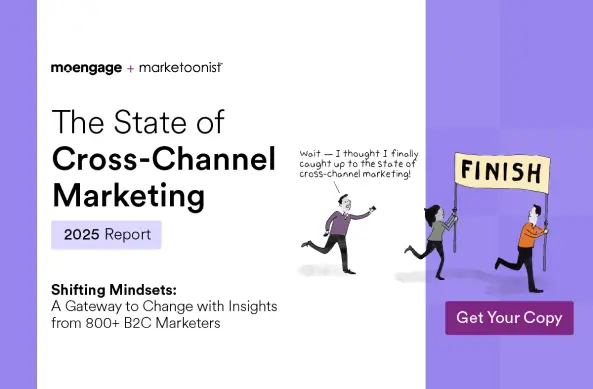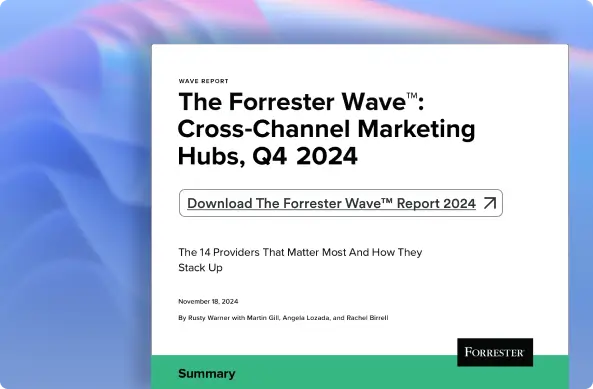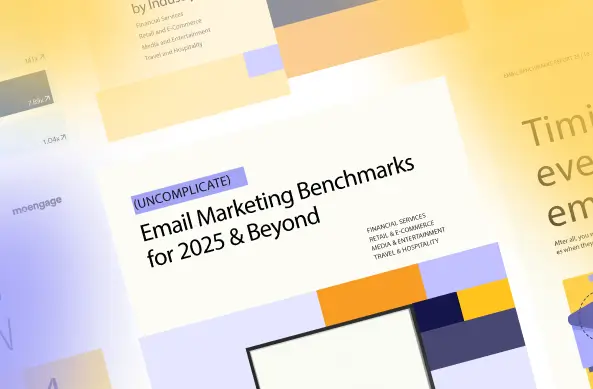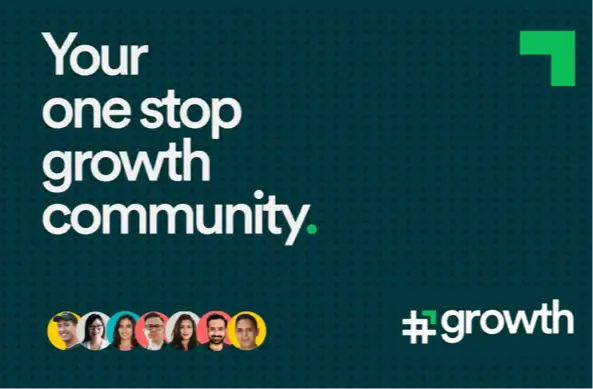How Consumer Brands in Southeast Asia Are Winning With Insights-led Customer Engagement
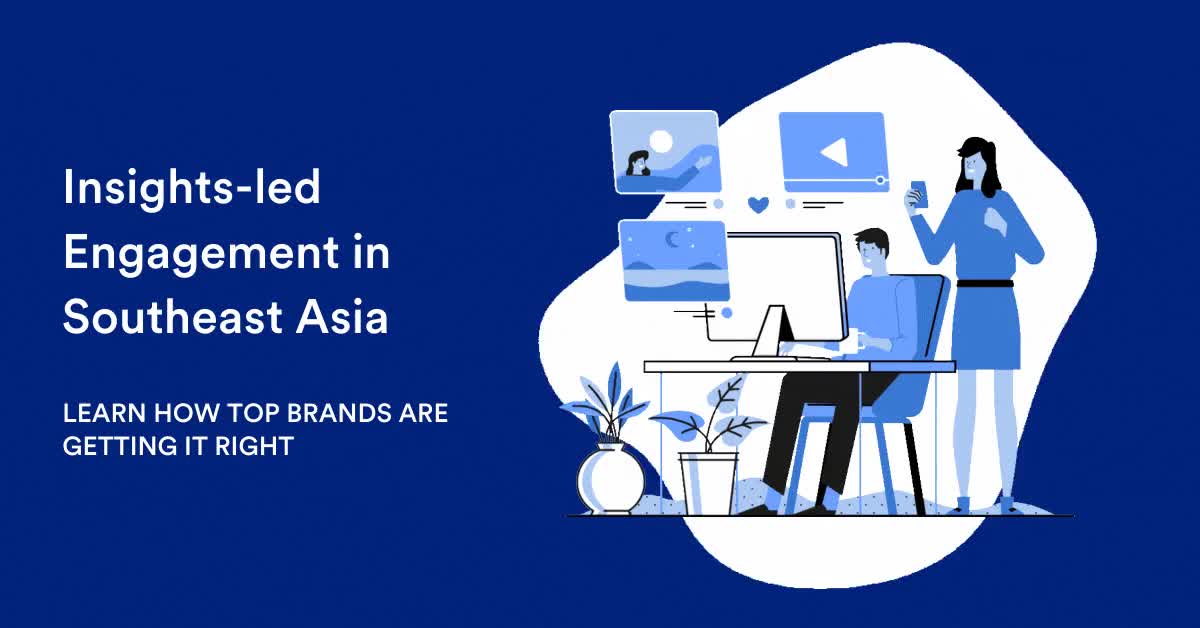
Reading Time: 7 minutes
They say a business only has two functions: innovation, and marketing. How the latter has evolved over the past couple of years is nothing but a boon for consumers all around the world. The new-age customer, not just expects, rather demands an experience that is personalized, delightful, and valuable.
And savvy brands have shown that doing that is the only way to succeed in the cut-throat of today’s digital-first business. But, it begs the question: how can brands achieve this level of sophistication with their customer engagement practices? The answer lies in insights-led engagement.
Insights-led customer engagement is a business framework where data serves as the cornerstone for all customer engagement decisions. Starting with analytics to analyze and predict user behavior, personalizing communication and content based on these insights, orchestrating data-driven engagement, followed by a focus on retaining customers through an omnichannel strategy.
Here are some of the reasons why insights-led customer engagement becomes essential for digital-first brands:
- Helps you engage customers in an individualized fashion, as opposed to the spray and pray approach brands have been following for a long time
- Improves customer loyalty by the way of bettering relationships with your prospects and customers
- Gives your brand a human personality, one that puts in the effort to relate and converse with their audience
And this is just the tip of the iceberg. Brands that have implemented insights-led customer engagement for their business have seen 29% faster growth as compared to brands that haven’t yet given it a shot.
Insights-led customer engagement framework at a glance
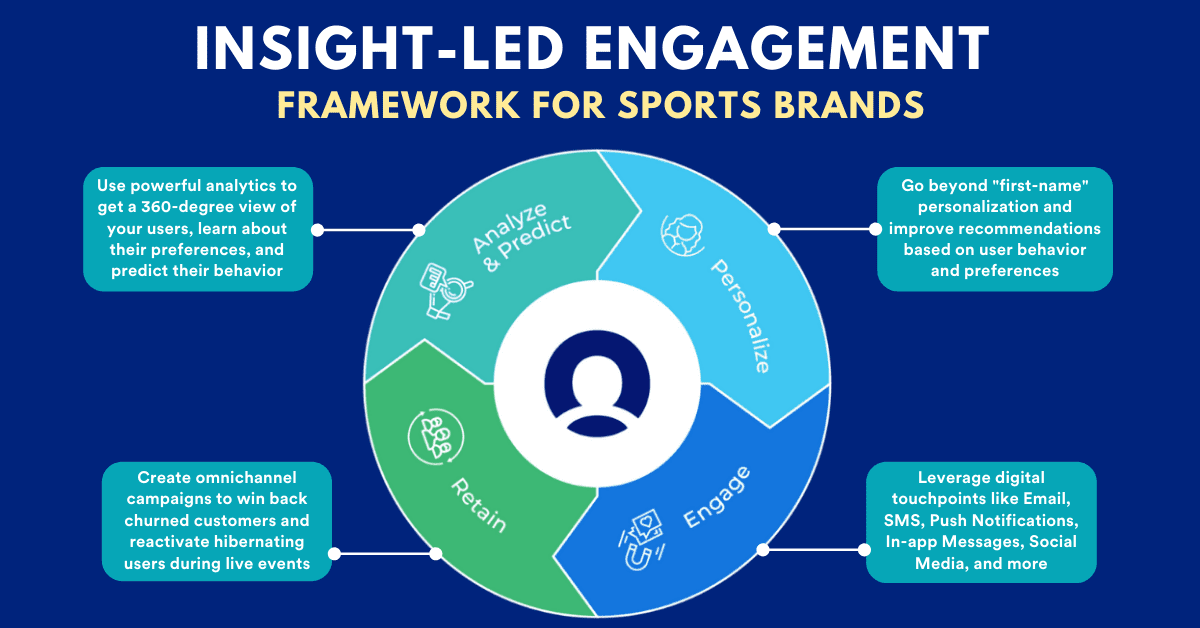
The insights-led customer engagement framework championed by MoEngage customers typically follows the four steps as shown in the illustration above, let’s dive a little deeper into each of them:
Analyze your business data to predict your customers’ behavior
The very first step in the insights-led customer engagement flywheel is also the most important. Marketers and product managers at leading consumer brands use powerful analytics to get a 360-degree view of their customers to learn more about them and predict their behavior.
In a panel discussion with MoEngage, here’s what Rajeshwari Kanesin, Innovation Manager at U Mobile, one of Malaysia’s leading Telcos had to say about analyzing data for user insights:
“When we started, we used to look at the RFM model to analyze customer behavior. But, over time, the RFM model had to be evolved to contextualize the whole digital experience today. So what we have done is to use the model at every point, throughout the customer’s journey. Even up to the point that now we are running hundreds of campaigns from the insights we derived.”
Improve recommendations and offerings by personalizing basis users’ behavior and preferences

Now, based on the insights gleaned from analyzing your customer data, you need to personalize your users’ experience beyond what is considered hygiene. Providing your customers with a highly contextual, relevant, and engaging experience starts with putting in the effort to cater to their likes and dislikes. This step is a crucial step in your brand’s efforts to solidify its image as a brand that does justice to the customers’ expectations.
Once you have put in the effort and resources to build a solid foundation for personalizing your users’ experience (building the infrastructure, setting up the required tools, etc.), you will start to see how your investment gives a tremendous boost in the ROI by the way of improved customer engagement.
Reach out to and engage with your customers across multiple touchpoints

As the next step in the insights-led customer engagement framework, brands drive user engagement by orchestrating data-driven omnichannel user journeys, increasing user reachability across multiple communication channels, and optimizing the performance of engagement campaigns using technology such as machine learning.
In the same panel discussion as mentioned earlier, Kushal Manupati, Head of Digital at Zilingo, a leading Southeast Asian e-commerce platform said something interesting to note:
“So the user journey is becoming complex with the plethora of channels that are now available and users also demanding to be contacted in those specific channels and have their own affinity to certain channels and so on. And I think in order to add value to the user, what we need to understand is what life stage the user is currently in, and where you want the user to go. All your marketing decisions flow from this point of view.” And this is a good place to start this crucial third step from.
And this is a good place to start this crucial third step from.
Create omnichannel engagement campaigns to combat churn and win back lost customers

In order to grow at breakneck speed, brands not only need to acquire new customers, but also ensure existing customers remain loyal and active, and also improve their CLV over time if possible. However, this mostly ends up being something too good to be true.
What marketers need to ensure in such a case is to focus on building multi-channel, personalized campaigns aimed at winning lost customers back, preventing customers about to churn from leaving them, and so on. Thus, completing the fourth and final step in the insights-led customer engagement flywheel.
How leading Asian brands leverage Insights-led customer engagement
Hundreds of brands across Southeast Asia deploy MoEngage as the customer engagement platform of their choice to make the most of their engagement strategy. Here is a look at how some of those brands have been instrumental in confirming the potential of this nascent art and science for consumer brands:
Mamikos boosts room rental bookings by 20% using MoEngage Analytics
Mamikos, Indonesia’s most popular room rental app, found back in 2015 to offer easy, accurate yet trusted room rental services. Mamikos has been providing and managing accommodation with detailed information from various cities of Indonesia. The brand has been offering long-stay room rental services to over 2 million customers.

One of the challenges for them was the inability to feedback user behavior on their app and website to their marketing communication. As a result, they were sending generic communication about the available property to its customers. They wanted to switch to a more personalized approach to engage customers.
Using MoEngage, the team at Mamikos was able to deep-dive into the funnel data and identify two stages in the user journey that showed huge drop-offs: the ‘add to favorite’ stage and the ‘booking’ stage.

Armed with this insight into their user’s behavior, Mamikos revised its generic communication to a more relevant, personalized engagement strategy. Read more here
Blibli uplifts repeat purchase rate by 43%
Blibli, a one-stop e-commerce platform in Indonesia, is one of the pioneers of the online shopping mall. The brand offers more than thousands of products under 16 different categories from groceries and fashion to gadgets, from home decor and furniture to automotive products. They also provide vouchers, utility bill payments, and travel packages.
Blibli was having micro-moments with its customers either when they made a purchase or added products to the wishlist. However, the brand’s team was not able to engage these customers at the right moment with relevant product positioning using other product categories.
The Blibli team decided to analyze active customers and run campaigns based on that data using MoEngage platform during their anniversary sale. Eventually, they were able to drive more repeat purchases from existing customers and new purchases from new customers. Read more here
Luxstay witnesses a 60% boost in engagement rate using segmentation and personalization
Luxstay is an online short-term rental platform and hospitality service established in 2016. The hospitality service providers aim to bridge the gap between homeowners and travelers, making independent travel more accessible and helping homeowners generate more revenue from their properties.
The marketing team at the company had a basic engagement strategy that they were running using a marketing automation platform. However, this platform had its limitations due to which the brand observed inconsistent segmentation, siloed channels, and no proper engagement.
The team strategized to grow user engagement to have a better user view of behavior understanding, thereby increasing conversions by segmentation and personalized communication. Luxstay utilized the MoEngage platform to custom segment and offer personalized intuitive engagement, resulting in a 5X increase in conversions, and a 1.8X increase in MAUs.

Kredivo uses Automated Flows to influence conversions by up to 40%
Kredivo enables e-commerce buyers to apply and qualify for instant credit and pay back over time. Merchants using Kredivo benefit from providing Point of Sale financing using a 2-click checkout to all eligible buyers. In less than 3 years since its launch, Kredivo had become one of the fastest growing and the stickiest digital payment channels for e-commerce in Indonesia.
Online shoppers today use at least two devices before they make a purchase. Staying with these customers every step of the way was a challenge that Kredivo wanted to overcome.
Using MoEngage, Kredivo implemented an omnichannel engagement strategy to engage and convert new customers that resulted in a 20% uplift in push notifications’ delivery and a 64% conversion rate for triggered emails. Read more here
Insights-led customer engagement is here to stay
One pertinent question that comes up time and again for marketers, is whether a new methodology is just a pure fad or more than that? Is it just the bandwagon effect, or is there some inherent logic (read: science) behind this thing?
Fortunately for you, insights-led customer engagement definitely the latter. Since it involves data as the key driver for business decisions, it is based on quantifiable proof, rather than hunch or intuition. As a marketer or brand, the best you can do right now is to learn this art while it is still nascent, and have a headstart over your peers and competitors.

